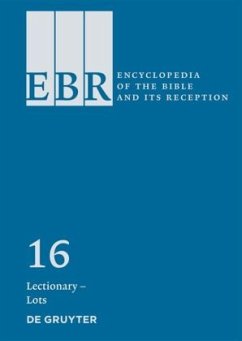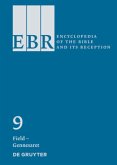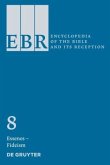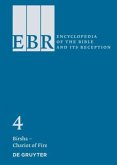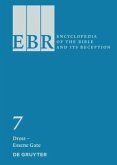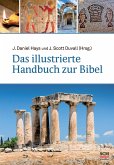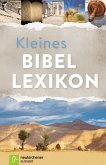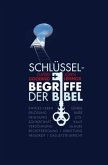The projected thirty-volume Encyclopedia of the Bible and Its Reception (EBR) is intended to serve as a comprehensive guide to the current state of knowledge on the background, origins, and development of the canonical texts of the Bible as they were accepted in Judaism and Christianity. Unprecedented in breadth and scope, this encyclopedia also documents the history of the Bible's interpretation and reception across the centuries, not only in Judaism and Christianity, but also in literature, visual art, music, film, and dance, as well as in Islam and other religious traditions and new religious movements.
The EBR is also available online.
Blogger's Choice - Articles recommended by biblioblogger Jim West (https://zwingliusredivivus.wordpress.com)
Levi (Son of Jacob) VI. Film (Rhonda Burnette-Bletsch; St. Davids, Pa., USA)
In her discussion of Levi in Film, Burnette-Bletsch observes that "Jacob's son Levi is a common, but largely undifferentiated character in most Joseph films." However, "Levi is much more prominently featured in films that include or focus upon Dinah and the Shechemite massacre (Gen 34)." The material the author provides is quite intriguing and makes me want to had seen the films she mentioned.
Levite's Concubine I. Hebrew Bible/Old Testament (Cynthia Edenburg; Raanana, Israel)
Edenburg writes "The Levite's concubine is the enigmatic figure who puts into motion the complex plot, which plays out in Judg 19-21. The sole action attributed to her is related at the outset of the story, when she is angry with her husband and leaves his home in Mount Ephraim to return to her father's house in Bethlehem." She then investigates the character in the Hebrew Bible in a thoroughly engaging fashion.
Lesbian Interpretation of the Bible II. Christianity (Lynn R. Huber; Elon, N.C., USA)
"Complicating the task of identifying lesbian biblical interpretation in Christian history are the questions of 1) what constitutes lesbian identity; 2) whether an interpreter must self-identify as a lesbian to engage in lesbian biblical interpretation; and 3) whether or not the content of the biblical text must reference a female same-sex relationship to constitute lesbian interpretation." After commencing her contribution thusly, Huber cites various studies and monographs which attempt to demonstrate lesbian protagonists within NT texts (like Mary and Martha, one such study opines). "Interpretations of NT texts from a lesbian perspective appear less frequently than similar readings of Hebrew Bible traditions," she asserts.
Lie, Lying I. Ancient Near East (John E. Anderson; Aberdeen, S.Dak., USA)
Anderson's examination of the concept of deception in the ancient Near East features a survey of some of the more important literature and how those texts address the issue of lying. Anderson also notices that YHWH both condemns deception and is complicit in deception at various times. Anderson has produced a very informative entry and the ideal launch point for the other segments of the entry.
Lie, Lying II. Hebrew Bible/Old Testament (Antony Perrot; Begnins, Switzerland)
Perrot concludes his entry which examines lying in the Hebrew Bible in the following fashion: "One can observe that the boundaries between ruse, falsehood, and lie are not always easy to determine, and that each case must be examined closely." Perrot is a bright young rising scholar and his work here and elsewhere is certainly worthy of consultation.
Linguistic Dating (Hebrew Bible)(Robert Rezetko; St. Andrews, United Kingdom)
Rezetko, perhaps one of three people working today who is most knowledgeable about the subject of his
Hinweis: Dieser Artikel kann nur an eine deutsche Lieferadresse ausgeliefert werden.
The EBR is also available online.
Blogger's Choice - Articles recommended by biblioblogger Jim West (https://zwingliusredivivus.wordpress.com)
Levi (Son of Jacob) VI. Film (Rhonda Burnette-Bletsch; St. Davids, Pa., USA)
In her discussion of Levi in Film, Burnette-Bletsch observes that "Jacob's son Levi is a common, but largely undifferentiated character in most Joseph films." However, "Levi is much more prominently featured in films that include or focus upon Dinah and the Shechemite massacre (Gen 34)." The material the author provides is quite intriguing and makes me want to had seen the films she mentioned.
Levite's Concubine I. Hebrew Bible/Old Testament (Cynthia Edenburg; Raanana, Israel)
Edenburg writes "The Levite's concubine is the enigmatic figure who puts into motion the complex plot, which plays out in Judg 19-21. The sole action attributed to her is related at the outset of the story, when she is angry with her husband and leaves his home in Mount Ephraim to return to her father's house in Bethlehem." She then investigates the character in the Hebrew Bible in a thoroughly engaging fashion.
Lesbian Interpretation of the Bible II. Christianity (Lynn R. Huber; Elon, N.C., USA)
"Complicating the task of identifying lesbian biblical interpretation in Christian history are the questions of 1) what constitutes lesbian identity; 2) whether an interpreter must self-identify as a lesbian to engage in lesbian biblical interpretation; and 3) whether or not the content of the biblical text must reference a female same-sex relationship to constitute lesbian interpretation." After commencing her contribution thusly, Huber cites various studies and monographs which attempt to demonstrate lesbian protagonists within NT texts (like Mary and Martha, one such study opines). "Interpretations of NT texts from a lesbian perspective appear less frequently than similar readings of Hebrew Bible traditions," she asserts.
Lie, Lying I. Ancient Near East (John E. Anderson; Aberdeen, S.Dak., USA)
Anderson's examination of the concept of deception in the ancient Near East features a survey of some of the more important literature and how those texts address the issue of lying. Anderson also notices that YHWH both condemns deception and is complicit in deception at various times. Anderson has produced a very informative entry and the ideal launch point for the other segments of the entry.
Lie, Lying II. Hebrew Bible/Old Testament (Antony Perrot; Begnins, Switzerland)
Perrot concludes his entry which examines lying in the Hebrew Bible in the following fashion: "One can observe that the boundaries between ruse, falsehood, and lie are not always easy to determine, and that each case must be examined closely." Perrot is a bright young rising scholar and his work here and elsewhere is certainly worthy of consultation.
Linguistic Dating (Hebrew Bible)(Robert Rezetko; St. Andrews, United Kingdom)
Rezetko, perhaps one of three people working today who is most knowledgeable about the subject of his
Hinweis: Dieser Artikel kann nur an eine deutsche Lieferadresse ausgeliefert werden.

